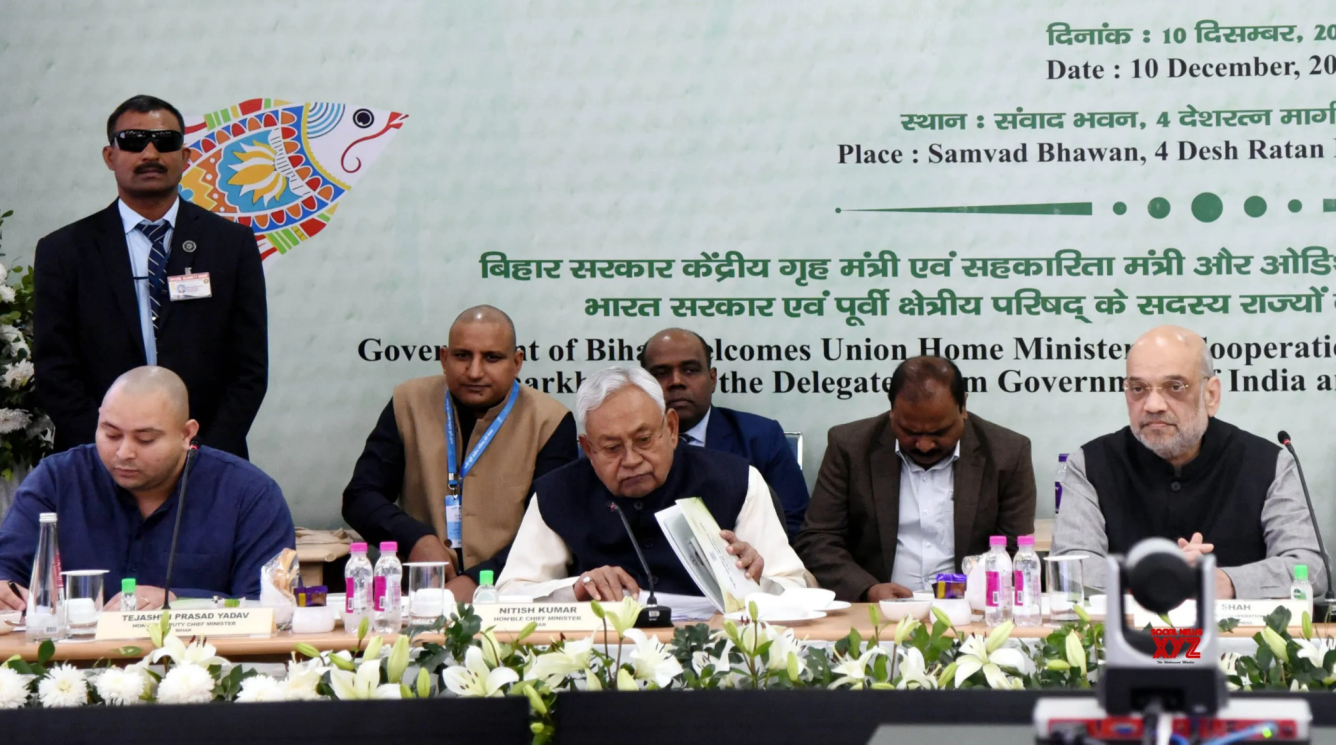Amit Shah to chair 26th meeting of Eastern Zonal Council in Bihar on Sunday (Business Standard)

- 09 Dec 2023
Why is it in the News?
Union Home Minister Amit Shah will chair the 26th meeting of the Eastern Zonal Council in Bihar's capital on Sunday, the Ministry of Home Affairs (MHA) said on Saturday.
What are Zonal Councils?
- The conceptualization of Zonal Councils can be attributed to the visionary initiative of India's first Prime Minister, Pandit Jawahar Lal Nehru, in 1956.
- These councils are statutory bodies established by an Act of Parliament, namely the States Reorganisation Act of 1956.
- The act delineated the country into five zones (Northern, Central, Eastern, Western, and Southern), assigning a Zonal Council to each.
Present Composition of Zonal Councils:
- Northern Zonal Council: Includes Haryana, Himachal Pradesh, Jammu & Kashmir, Punjab, Rajasthan, National Capital Territory of Delhi, and Union Territory of Chandigarh.
- Central Zonal Council: Encompasses Chhattisgarh, Uttarakhand, Uttar Pradesh, and Madhya Pradesh.
- Eastern Zonal Council: Comprises Bihar, Jharkhand, Orissa, and West Bengal.
- Western Zonal Council: Involves Goa, Gujarat, Maharashtra, and the Union Territories of Daman & Diu and Dadra & Nagar Haveli.
- Southern Zonal Council: Consists of Andhra Pradesh, Karnataka, Kerala, Tamil Nadu, and the Union Territory of Puducherry.
- Exclusion and Special Council: The North Eastern States (Assam, Arunachal Pradesh, Manipur, Tripura, Mizoram, Meghalaya, and Nagaland) are not part of Zonal Councils.
- Instead, their unique challenges are addressed by the North Eastern Council, established under the North Eastern Council Act of 1972.
- Sikkim was included in the North Eastern Council in 2002.
Organizational Structure:
- Chairman: The Union Home Minister serves as the Chairman for each Zonal Council.
- Vice Chairman: Chief Ministers of the states in each zone act as Vice-Chairman, rotating annually.
- Members: Chief Minister and two nominated Ministers from each state, along with two members from Union Territories in the zone.
- Advisers: Planning Commission nominees, Chief Secretaries, and another officer/Development Commissioner from each state in the zone.
Objectives:
- The primary objectives of Zonal Councils include promoting national integration and curbing acute State consciousness, regionalism, linguism, and particularistic tendencies.
- Additionally, they aim to facilitate cooperation, idea exchange, and a climate of collaboration among states for the successful execution of development projects.
Functions:
- Zonal Councils function as advisory bodies, empowered to discuss common interests between the Union and represented states.
- They can recommend courses of action to the Central Government and individual state governments.
- Specific areas of discussion may include economic and social planning, border disputes, linguistic minorities, inter-state transport, and matters arising from the reorganization of states under the States Reorganisation Act.
